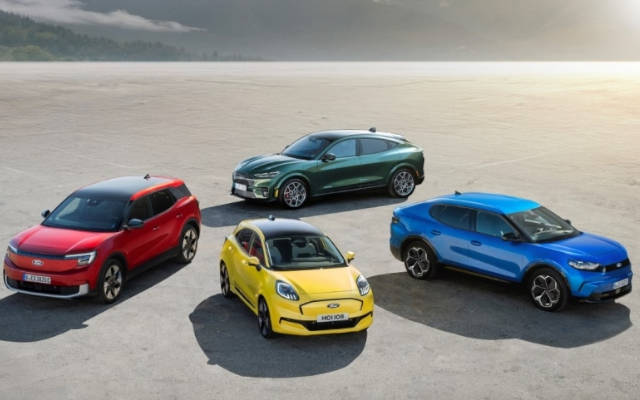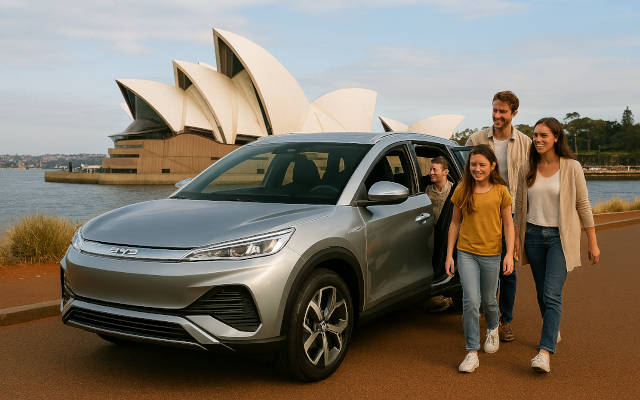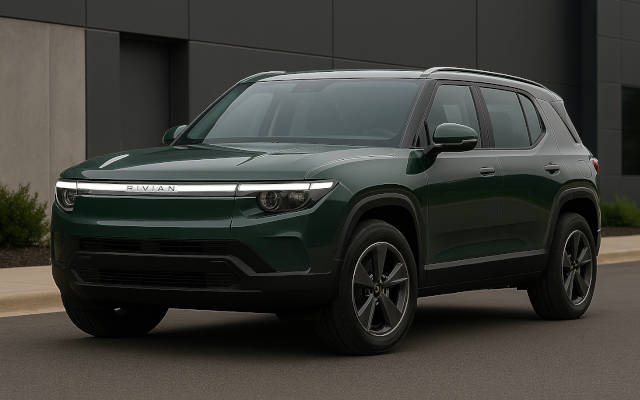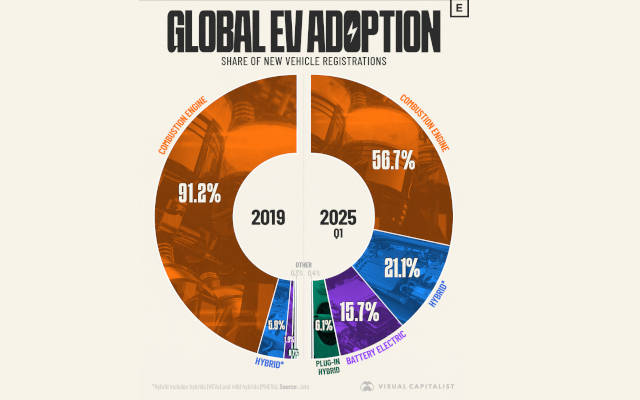 EDITOR'S PICK
EDITOR'S PICK
Electric Aviation's Summer Surge: Startups, Certification, and the Race to Redefine Flight
25 Aug 2025 | Synopsis
 Electric aviation is accelerating as startups like Joby, Archer, Ampaire, and ZeroAvia push toward FAA certification and commercial launch. New FAA rules streamline approval for powered-lift aircraft, while propulsion strategies—battery, hybrid, and hydrogen—diversify range and infrastructure needs. Despite regulatory hurdles, investor confidence and airline partnerships signal that 2025 may be the breakout year for sustainable flight.
Electric aviation is accelerating as startups like Joby, Archer, Ampaire, and ZeroAvia push toward FAA certification and commercial launch. New FAA rules streamline approval for powered-lift aircraft, while propulsion strategies—battery, hybrid, and hydrogen—diversify range and infrastructure needs. Despite regulatory hurdles, investor confidence and airline partnerships signal that 2025 may be the breakout year for sustainable flight.Ford Is A Bellwether: Electric Vehicles Are Coming, Despite Policy Shifts By Oil Bought-Off American Presidency
25 Aug 2025 | Synopsis
 Despite Trump's rollback of EV incentives and emissions rules, Ford is doubling down on electrification. It announced a $5B investment in a modular EV platform and a sub-$30K electric pickup by 2027. Driven more by Chinese competition than U.S. politics, Ford aims to streamline production and stay globally competitive. EV sales remain strong outside Tesla, and legacy automakers are shifting toward affordable models and lithium iron phosphate batteries.
Despite Trump's rollback of EV incentives and emissions rules, Ford is doubling down on electrification. It announced a $5B investment in a modular EV platform and a sub-$30K electric pickup by 2027. Driven more by Chinese competition than U.S. politics, Ford aims to streamline production and stay globally competitive. EV sales remain strong outside Tesla, and legacy automakers are shifting toward affordable models and lithium iron phosphate batteries.An EV Road User Charge Is Looming. Could It Slam The Brakes On Australia's Clean Car Transition?
25 Aug 2025 | Synopsis
 As Australia's electric vehicle fleet grows, the government is considering a road user charge to replace dwindling fuel excise revenue. A proposal from New South Wales suggests a fee of 2.97 cents per kilometre for battery EVs, with collection potentially based on distance driven. Critics worry this will hinder the clean transport transition, arguing the charge should apply to all vehicles, not just EVs.
As Australia's electric vehicle fleet grows, the government is considering a road user charge to replace dwindling fuel excise revenue. A proposal from New South Wales suggests a fee of 2.97 cents per kilometre for battery EVs, with collection potentially based on distance driven. Critics worry this will hinder the clean transport transition, arguing the charge should apply to all vehicles, not just EVs. Rivian R4 And R5 Will Be Lower-Cost 'Siblings' Than R2 And R3, CEO Says
25 Aug 2025 | Synopsis
 Rivian CEO RJ Scaringe reveals R4 & R5 EVs in early concept stage as "sibling set" sharing new platform, priced lower than upcoming R2/R3 models ($45K starting). While Tesla's Musk calls cheap EVs "pointless" without autonomy, Rivian pursues full-line automaker strategy with mainstream affordable EVs. No engineering teams assigned yet - purely conceptual stage.
Rivian CEO RJ Scaringe reveals R4 & R5 EVs in early concept stage as "sibling set" sharing new platform, priced lower than upcoming R2/R3 models ($45K starting). While Tesla's Musk calls cheap EVs "pointless" without autonomy, Rivian pursues full-line automaker strategy with mainstream affordable EVs. No engineering teams assigned yet - purely conceptual stage.Charted: Global EV Adoption (2019 vs. 2025)
24 Aug 2025 | Synopsis
 Global sales of electrified vehicles (EVs) soared from just 9% of the market in 2019 to 43% in the first quarter of 2025. This dramatic increase is largely propelled by China, which accounts for 57% of global battery-electric vehicle registrations. Consequently, the market share of traditional combustion engine vehicles has fallen from 91.2% to 56.7% in the same period, highlighting a rapid shift in consumer preference toward electric and hybrid options.
Global sales of electrified vehicles (EVs) soared from just 9% of the market in 2019 to 43% in the first quarter of 2025. This dramatic increase is largely propelled by China, which accounts for 57% of global battery-electric vehicle registrations. Consequently, the market share of traditional combustion engine vehicles has fallen from 91.2% to 56.7% in the same period, highlighting a rapid shift in consumer preference toward electric and hybrid options.
 EVWorld Exclusive
EVWorld Exclusive
Unlocking Heat's Hidden Potential: How a Nanoscale Discovery Could Transform Everyday Tech
24 Oct 2025 |  A recent nanoscale physics breakthrough reveals heat can transfer across tiny gaps far more efficiently than expected - up to 100 times greater than classical predictions. This could revolutionize cooling and energy systems in electronics, EVs, and smart appliances. While engineering challenges remain, early applications may emerge within 3-5 years, with broader consumer adoption possible in the next decade. The future of heat management may be silent, solid-state, and radically efficient.
A recent nanoscale physics breakthrough reveals heat can transfer across tiny gaps far more efficiently than expected - up to 100 times greater than classical predictions. This could revolutionize cooling and energy systems in electronics, EVs, and smart appliances. While engineering challenges remain, early applications may emerge within 3-5 years, with broader consumer adoption possible in the next decade. The future of heat management may be silent, solid-state, and radically efficient.
Turning the Energy Crunch into a Smart Grid Revolution
24 Oct 2025 |  America's energy crunch is not about supply - it's about coordination. Virtual power plants and vehicle-to-grid systems offer a scalable, software-driven solution to rising demand from AI, EVs, and climate volatility. By turning homes, vehicles, and businesses into active grid assets, and aligning policy with technology, the U.S. can build a smarter, more resilient energy future without building more power plants. The tools exist - now it's time to connect them.
America's energy crunch is not about supply - it's about coordination. Virtual power plants and vehicle-to-grid systems offer a scalable, software-driven solution to rising demand from AI, EVs, and climate volatility. By turning homes, vehicles, and businesses into active grid assets, and aligning policy with technology, the U.S. can build a smarter, more resilient energy future without building more power plants. The tools exist - now it's time to connect them.
Auto Retail in 2025: Bridging the Trust Gap Between Dealers and Buyers
24 Oct 2025 |  The 2025 Urban Science and Harris Poll report reveals a growing disconnect between dealers and buyers. While dealers embrace EVs, AI, and digital tools, many buyers remain cautious - especially about full electrification and online-only retail. Brand loyalty is weakening, and policy clarity is key to adoption. The future of auto retail depends on bridging trust, flexibility, and infrastructure gaps.
The 2025 Urban Science and Harris Poll report reveals a growing disconnect between dealers and buyers. While dealers embrace EVs, AI, and digital tools, many buyers remain cautious - especially about full electrification and online-only retail. Brand loyalty is weakening, and policy clarity is key to adoption. The future of auto retail depends on bridging trust, flexibility, and infrastructure gaps.
Electric Icons in the Making: Audi Concept C vs. Chevrolet Corvette EV
23 Oct 2025 |  Audi's Concept C previews a refined electric GT built on the mature PPE platform, likely arriving by 2026. Chevrolet's Corvette EV promises supercar performance but faces packaging and thermal challenges. Audi is closer to production; Corvette remains in early development. Both reflect divergent strategies in electrifying legacy sports cars, with Audi emphasizing platform maturity and Chevrolet pursuing brand continuity through engineering innovation.
Audi's Concept C previews a refined electric GT built on the mature PPE platform, likely arriving by 2026. Chevrolet's Corvette EV promises supercar performance but faces packaging and thermal challenges. Audi is closer to production; Corvette remains in early development. Both reflect divergent strategies in electrifying legacy sports cars, with Audi emphasizing platform maturity and Chevrolet pursuing brand continuity through engineering innovation.
Electrification Is Not an Oversimplification
23 Oct 2025 |  Despite critiques that the quest for global electrification is "simplistic", the transition is strategic and necessary. Grid upgrades, battery innovation, and tailored policies make electrification viable. Sodium-ion batteries and recycling reduce material risk. Compared to fossil fuels, electrification offers cleaner, safer, and more resilient systems. Complexity demands better design - not delay.
Despite critiques that the quest for global electrification is "simplistic", the transition is strategic and necessary. Grid upgrades, battery innovation, and tailored policies make electrification viable. Sodium-ion batteries and recycling reduce material risk. Compared to fossil fuels, electrification offers cleaner, safer, and more resilient systems. Complexity demands better design - not delay.
SEARCH RSSTREAM
 36 New Postings In Past 24 Hours
36 New Postings In Past 24 Hours
Category:environment
Region:MidEast
Date:25 Oct 2025
Category:mobility
Region:AsiaPacific
Date:25 Oct 2025
Category:finance
Region:NoAmerica
Date:25 Oct 2025
Category:mobility
Region:Global
Date:25 Oct 2025
Category:energy
Region:Europe
Date:25 Oct 2025
Category:energy
Region:AsiaPacific
Date:25 Oct 2025
Category:mobility
Region:NoAmerica
Date:25 Oct 2025
Category:energy
Region:NoAmerica
Date:25 Oct 2025
Category:mobility
Region:MidEast
Date:25 Oct 2025
Category:mobility
Region:AustralPacific
Date:25 Oct 2025
Category:mobility
Region:Europe
Date:25 Oct 2025
Category:mobility
Region:NoAmerica
Date:25 Oct 2025
Category:energy
Region:Europe
Date:25 Oct 2025
Category:mobility
Region:AsiaPacific
Date:25 Oct 2025
Category:mobility
Region:NoAmerica
Date:25 Oct 2025
Category:mobility
Region:AsiaPacific
Date:25 Oct 2025
Category:review
Region:Europe
Date:25 Oct 2025
Category:review
Region:NoAmerica
Date:25 Oct 2025
Category:mobility
Region:AsiaPacific
Date:25 Oct 2025
Category:finance
Region:Europe
Date:25 Oct 2025
